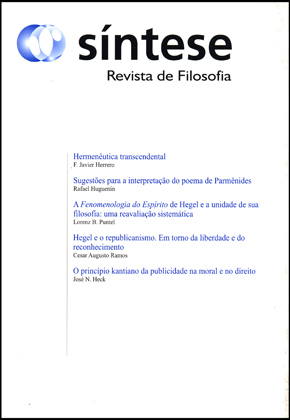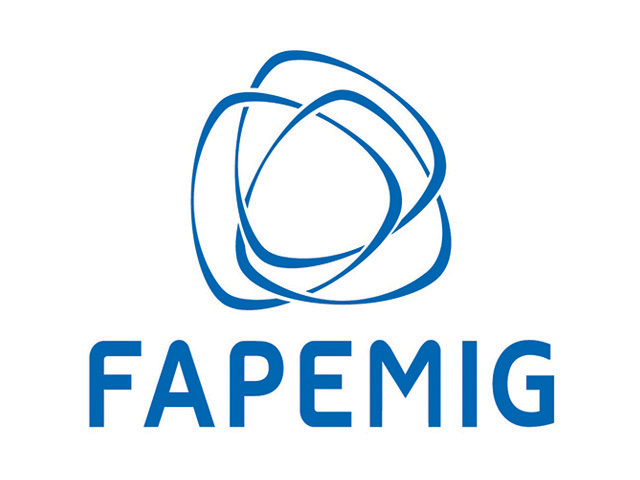HERMENÊUTICA TRANSCENDENTAL
DOI:
https://doi.org/10.20911/21769389v36n115p173-196/2009Palavras-chave:
Hermenêutica, Heidegger, Gadamer, Karl-Otto Apel, destranscendentalização, retranscendentalização.Resumo
O autor tenta mostrar que a virada lingüística, realizada por Heidegger a partir de sua transformação hermenêutica da fenomenologia, leva consigo uma identificação de “linguagem” e “razão”, que terá como conseqüência uma destranscendentalização da razão, na medida em que a abertura lingüística do mundo se torna instância última de validade de toda experiência intramundana, de todo acontecer da verdade, o qual supõe a primazia do significado sobre a referência e, finalmente, a primazia da dimensão semântica sobre a pragmática (como medium do entendimento). Gadamer aprofunda as condições de possibilidade do entendimento mostrando a nossa pertença à tradição, de forma que a linguagem constitui o verdadeiro acontecer hermenêutico, na medida em que vem à fala o dito na tradição. Essa conexão com a tradição é vista como “fonte de verdade”, de forma que assegura o poder normativo da tradição, e continua o processo de destranscendentalização. Apel mostrará que a raiz deste processo redutor se encontra na equiparação das condições de possibilidade da compreensão do sentido com as condições de possibilidade da validade intersubjetiva da compreensão. Mas ele encontrará a resposta à pergunta pela validade, não numa ontologia temporal do compreender entendida como acontecer da verdade, mas em idéias regulativas no sentido de Kant e Peirce. Estas se mostram capazes de orientar normativamente a compreensão, possibilitando assim uma nova retranscendentalização da hermenêutica, não só compatível com a historicidade de toda constituição de sentido, mas de forma que permite a reconstrução do passado parra uma apropriação crítica das tradições culturais e a projeção de um novo futuro cada vez mais humano.
Abstract: The author intends to show that the linguistic turn taken by Heidegger with his hermeneutical transformation of phenomenology, carries with it an identification between “language” and “reason”, which will lead to a detranscendentalization of the reason, in so far as the linguistic opening of the World becomes the ultimate instance of the value of all intermundane experience and of all happenings of truth, which supposes the precedence of meaning over reference and, finally, the precedence of the semantic dimension over the pragmatic one (as a medium of understanding). Gadamer furthers the conditions of the possibility of understanding showing our belonging to tradition, so that language constitutes the true hermeneutic happening, in so far as what is uttered is the spoken word of tradition. The connection with tradition is seen as “the source of all truth,” so that what he proposes secures the normative power of tradition and advances the detranscendentalization process. Apel will show that the root of this reductive process can be found in the equalization between the conditions of the possibility of the understanding of meaning and those of the possibility of the intersubjective validity of understanding. However, he will find an answer to the question of validity, not in a temporal ontology of understanding comprehended as a happening of truth, but in regulative ideas according to Kant and Peirce. Those ideas are able to normatively orient understanding, allowing for a new hermeneutical retranscendentalization, which is compatible with the historicity of any constitution of meaning in such a way that it enables the reconstruction of the past in view of a critical appropriation of cultural traditions and the projection of a new future, increasingly more human.


















